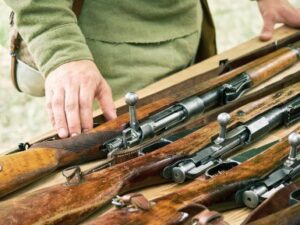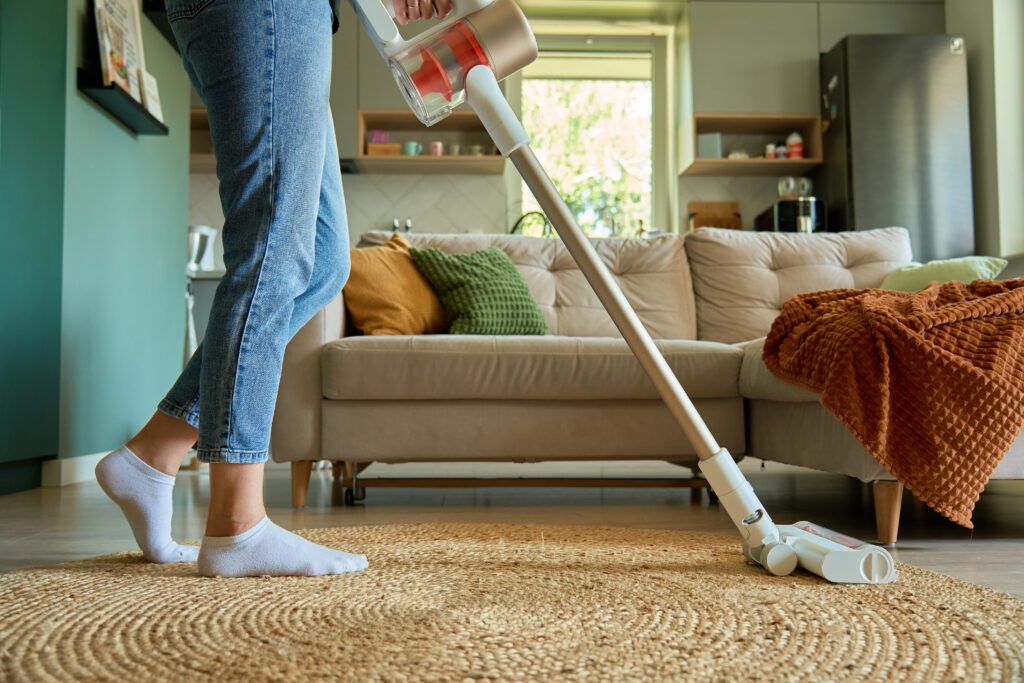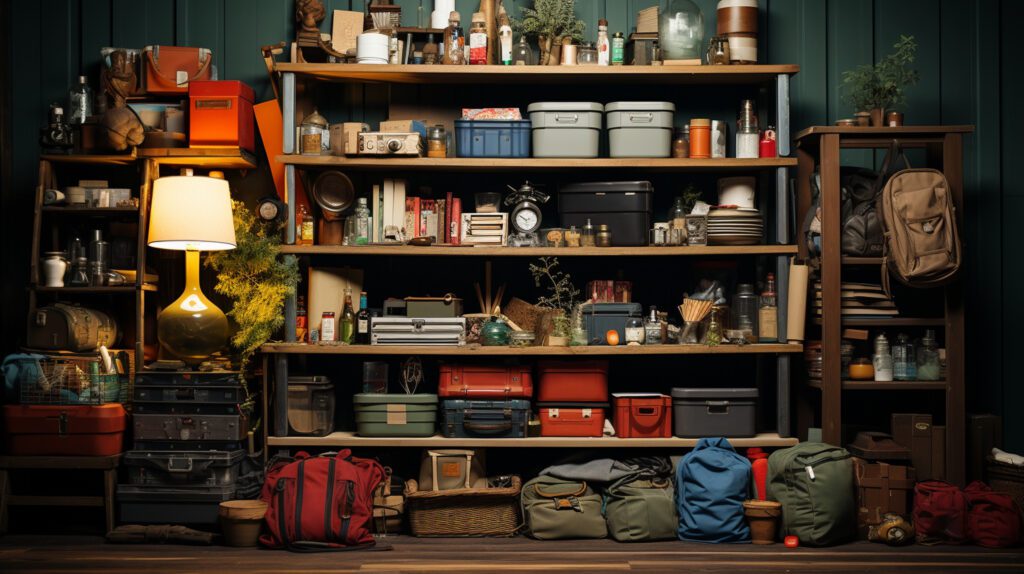
Whether you find antique or modern firearms in a family member’s estate, it’s essential to know how to handle them safely and legally. Many people aren’t comfortable handling firearms and they want them removed promptly. They may even call their local police department to remove them to be destroyed, but it’s not necessary to turn in old firearms right away.
We encourage you to do what’s comfortable for you, but you should also know that older firearms, ammunition, documentation, and even the box they are stored in may be antiques or collectibles that have value to historians and military collectibles dealers. We asked Washington DC area-based military collectible dealer and specialist, Tim Frank of Mid-Atlantic Military Antiques, to answer questions that frequently arise when people find firearms or ammunition when they are clearing a home.
When You Find a Firearm in a Loved One’s Estate
Help! I Found Firearms in My Parent’s Estate and I Don’t Know What to Do…
First, if you’re unsure how to handle firearms or are uncomfortable with them, it’s best to leave them where you found them until you can bring in someone confident in handling firearms, or schedule time for a licensed firearms dealer can come by.
Try to locate any accompanying paperwork, such as documentation, receipts, or licenses that would help establish the provenance. These documents can help determine the firearm’s history and value and may be required if you decide to sell or transfer the weapon. You don’t necessarily need to turn in old firearms, and it may be in your best interest to do a little research on their value.
Am I Required to Report Firearms and Ammunition to Local Authorities?
You are generally not obligated to report the discovery of firearms to authorities unless you suspect they were involved in criminal activities or were obtained illegally. Often, the first impulse may be to turn in old firearms. In some cases, people have turned their loved one’s collections over to the local police to be destroyed. While that is an option, you could be missing out on potentially hundreds or thousands of dollars in value.
What if I Just Want It Gone?
Don’t jump the gun! Older firearms may have significant value and can be sold legally to licensed dealers. Tim has talked with families who have inadvertently “turned in” firearms that could have been sold for thousands of dollars.
The value of a firearm can vary greatly depending on its age, make, model, and condition. Both antique and modern firearms can hold significant value to collectors or enthusiasts. Even broken firearms with a little rust have value to someone who needs parts to restore an old firearm in their collection.
What Makes a Firearm Collectible?
Many older military firearms and civilian rifles, pistols, and shotguns can be very collectible. American military firearms usually have “US” or “US Property” marked on them. Many of these firearms are no longer the property of the government, as many veterans purchased their firearms over half a century ago.
Foreign military firearms with “capture papers” are also collectible. The World War II through the Vietnam War generation had to get approval to bring their war souvenirs home. These papers (often yellowed and brittle) can add a lot of value to an otherwise run-of-the-mill rifle or pistol. There are even collectors who buy old ammunition. Many companies had fantastic artwork on their cartridge boxes in the 1800s and 1900s.
Who Is Authorized to Buy Firearms?
To legally sell old and valuable firearms, you’ll need to work with someone who has a Federal Firearms License (FFL), which allows them to legally purchase old and historic firearms from estates and individuals.
With these licenses comes the responsibility of keeping detailed records of every firearm purchase and sale. Be sure whoever you work with also follows local and state laws, keeps detailed records, and will provide you with the proper paperwork for your own records.
When a firearm is sold to a private buyer or at auction, the next owner will then go through his or her state police transfer process before the firearm is transferred to them.
To protect yourself, Tim recommends that any transfer of a firearm should be registered through a licensed dealer or the state police, even if you give it to a friend or pass it along to another family member. It is your responsibility to ensure the process is completed legally so it doesn’t come back to you in the future.
Discovering firearms in a loved one’s estate can be both a surprise and a responsibility. You don’t have to turn in old firearms. By understanding the value of these items and consulting with licensed professionals, you can ensure that these pieces are handled properly, legally, and respectfully.





